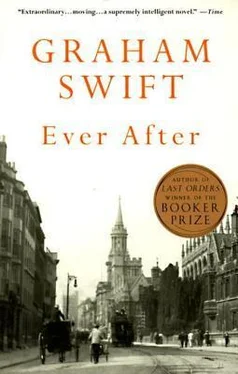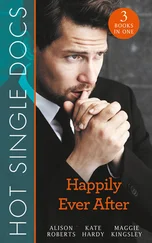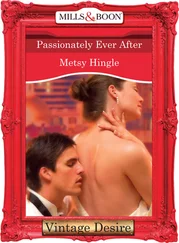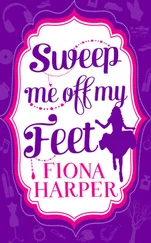He has two years left to live.
Local legend has it (I read up on Brunel) that Brunel died by jumping in despair from his Tamar Bridge. But this was not so. The bridge was opened, after ten years in the building, by the Prince Consort in May 1859. Broken in health by overwork (Matthew was right), Brunel was not there. But Matthew and his in-laws were there — and so was Matthew’s father. And Brunel himself was not, in the end, denied one last look at his masterpiece. With no cheering crowds or waving flags or royal guests, and lying on a specially prepared truck, he was pulled slowly, as if on a hearse, by one of the GWR’s original broad-gauge locomotives, under the massive piers and ironwork, over the glittering river.
Si monumentum requiris … It still stands, it is still there, still bearing its designer’s name, and still bearing the (diesel-powered, narrow-gauge) expresses into Cornwall. To build a bridge! To span a void! And what voids, what voids there were. He would never know. Need never know. These happy bridge-builders, these men of the solid world (these level-minded surveyors). He was safe. Safe in his sunset glory. Safe within the limits of an old, safe world. Only seven months after his bridge was opened and only two months after his death, Darwin would publish (some come to fame by building, some by—) his Origin of Species .
2nd May 1859:
… The occasion a strangely subdued one, compared with the triumph two years ago (I.K.B. then in splendid command) of the positioning of the first truss. Adorned by royalty and all the pomp of celebration, but marred by the sad absence of the presiding genius; and marred, quite spoilt — I must say it — so far as our little family outing was concerned, by the unhappy presence of my father.
Inexcusable! Unforgivable! And yet I forgive him, I forgive him. He had as much right as any of us to be there, to be lending his voice to the public applause — and, to be sure, he was not alone in finding the occasion worthy of a bumper or two. But it was inexcusable of him so to have sought us out, quite purposefully, among the crowd, in such a flagrant state of inebriation as must have offended grossly my whole family and the Rector and Mrs Hunt, not to say have humiliated me utterly before them all. And if his intention had been to humiliate me (though I do not think it truly was), then he might have been more consistent than to proclaim to the whole company that, but for my want of ambition and excess of circumspection, I might surely have been as famous a man as Brunel — when circumspection and a sense of proportion were once, so I recall, the very watchwords of his paternal counsel.
Yet who am I to admonish, let alone disown, my own father, when his plight is perhaps not so far, not so very far, from my own? Dear God, along the road of life we are destined to lose so much, the absence of which we can never make good! “Is not Brunel,” he ranted, “one of our greatest men?” “A great man,” I answered, as pointedly as I was able amidst the embarrassment, “and also a very forlorn one. They say he is dying.” Whereupon I noticed a visible flutter pass over his expression before he continued, for all to hear, pretending not to have marked my words, and actually clapping my back, “And yet I’m proud of the boy! Proud of the boy!”
The boy! Yet I do believe he meant it. I do believe that in his mockery he was expressing his pride.
And so our day was clouded — ruined. And henceforth, no doubt, I shall have to withstand ever more vinegared inquiries from the Rector as to my father’s “health.” A neat means he shall have for deflecting the usual direction of our conversations. What a trifling matter is a great and triumphant feat of engineering (not to say the question of ultimate causes), that it can be overshadowed by a family quarrel. And poor I.K.B., not long for this world. And yet his bridge will remain, surely, long after he and I are gone (and I am quite forgotten), a lasting memorial.…
I read up on Brunel; but I do not research my own father. I summon up Matthew, but I do not try to know my own father. My nameless, engine-driving, killed-in-the-war father. And why should I, when I never got to know the living, breathing man whom I took to be—? What difference does it make? The true or the false. This one or that one. The world will not shatter because of a single — misconception.… There I sit on the embankment above the canal and the railway line, and I do not spare a thought for him. He is far away, as it happens, on the far side of the Atlantic, and if he were at home, he would soon put an end to these bicycle rides. I am thinking of the roving, heroic lives of engine drivers. And I am so ignorant of how the world is changing, will change. Of how already like clumsy dinosaurs are these quaint, cacophonous steam trains, which, as they split the summer peace, fill me with such a sense of unsurpassed power.
He did it because of me. Because of me. Because there I was; and I wasn’t— I was the last straw. He did this thing: I know it can be done. He wanted — I see it now — to be something other than he was. He wanted all the deathly, death-defying magic of recognition, renown. This road to fame; these valleys of death. But he couldn’t pretend, he couldn’t turn the blind eye. It makes a difference. Oh it makes a difference! If I had known.
Look. The age of steam trains is already over — devoured by the ruthless age of ballerinas. I sit in the little école , mouthing some rigmarole from La Fontaine, with the April sun dancing at the window, and only streets away — if I had known — he is coming to his decision. This cancelling of the self by the self. To be or— Pull the trigger, then it won’t matter any more. April in Paris: surely this isn’t the end of the world? The patter of typewriters, the smell of coffee. But he really does it, he isn’t pretending or playing Hamlet. Little pieces of his hot, bright skull scattered across the floor. My father! My father!
He left Burlford in 1860. He never wrote another word in the Notebooks. But he didn’t throw them away, didn’t destroy them. Why? What were they for? Who was supposed to read them?
These notebook-keepers. This jotting urge. This need to set it down.
Is it possible that in the midst of his torment of soul (his what?) one tiny corner of Matthew’s eye was aimed at posterity? Some reader hereafter. Some unknown accreditor. “… and I am quite forgotten …” A small plea, after all, for non-extinction. A life, after all, beyond life.
Is it possible, in other words, that he was thinking of me ?
And what did he suppose that I should think of him? Did he consider, being a one-time fossil-collector, that he might turn into just another fossil himself? That his spiritual torment might become just another thing of the past, and future generations would shrug at the meaninglessness that once so appalled him?
(Shrug! All the pills in the bottle.)
And Elizabeth? And Elizabeth. It must have seemed to her such a simple and terrible thing. It must have seemed to her that nothing, least of all the mere thoughts in a man’s head — albeit her own husband’s head — could counterweigh that undeniable, years-old possession of love, that palpable access to happiness. And did he suppose that the death of Felix was something she hadn’t felt too? That she didn’t nurse too that aching, child-sized absence, which only made more precious, nonetheless, the treasure they kept ? What did it matter what he had or hadn’t faith in (though she wouldn’t have put it this way to her father), so long as he had such still-remaining happiness (was the whole stock ruined?) before him? And if it mattered so much that he rejected it, then it must mean that he’d never truly valued it. That he was pretending. That he didn’t really love her .
Читать дальше












